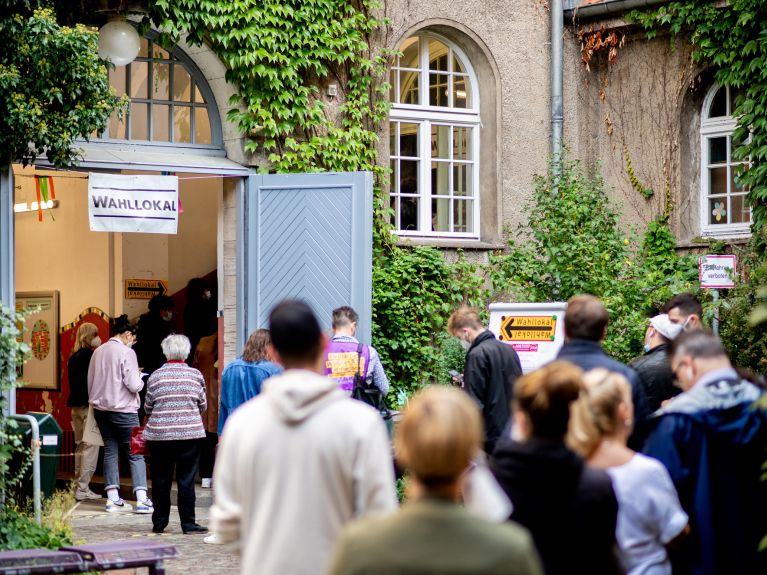Five facts about Germany’s democracy
Elections, parliament and government: a look at how the political will of the people is implemented in Germany.

Who is allowed to vote?
Every German from the age of 18 is allowed to vote in Bundestag elections. For some state and municipal elections voting is already permitted from the age of 16. There are also exceptions when it comes to citizenship: as in all European Union countries, EU citizens are allowed to participate in municipal elections in Germany.
Which is the most important German parliament?
Elected by the people, the Bundestag (with a current total of 736 members) supervises the work of government, elects the Federal Chancellor and makes decisions on new laws, the budget and Bundeswehr missions abroad.
Dieses YouTube-Video kann in einem neuen Tab abgespielt werden
YouTube öffnenThird party content
We use YouTube to embed content that may collect data about your activity. Please review the details and accept the service to see this content.
Open consent formHow can you become a Member of the German Bundestag?
Each voter has two votes in Bundestag elections. The first vote is cast for a specific candidate who will represent the respective constituency in the Bundestag. The second vote is cast for the state list of a specific political party, which can then delegate a number of parliamentarians based on its electoral result. Stephen F. Szabo, the US political scientist, writes that this German (personalised) form of proportional representation “produces multiparty coalition governments that reward consensus and compromises, unlike the American and British first-past-the-post systems.”
What role do the political parties play?
Although the Bundestag is important for German democracy, so are the political parties represented within it that reflect the views of their voters. In elections to the Bundestag and the parliaments of the German states parties must gain over 5% of the votes cast to enter the respective parliament. This prevents the representation of too many small groups in parliaments, which makes decision-making difficult.
Who is at the head of the democratic system?
The German head of state is the Federal President. In 2022, Frank-Walter Steinmeier was re-elected to this office by the Federal Assembly, which only convenes for this purpose. The importance of parliament is underlined by the fact that the Bundestag President (since 2021: Bärbel Bas) officially holds the second highest state office. The greatest political power, however, is in the hands of the Federal Chancellor (since 2021: Olaf Scholz) who is elected as head of government by the Bundestag.
You would like to receive regular information about Germany? Subscribe here:



